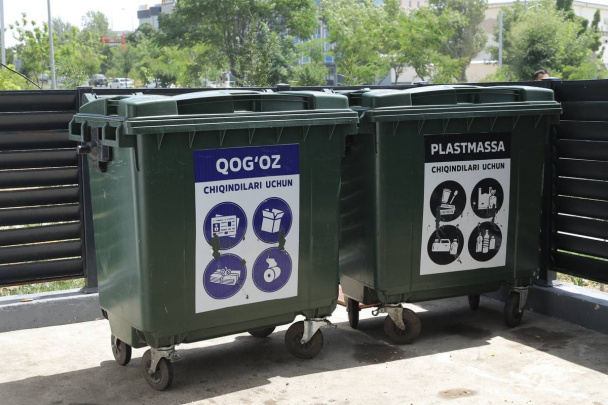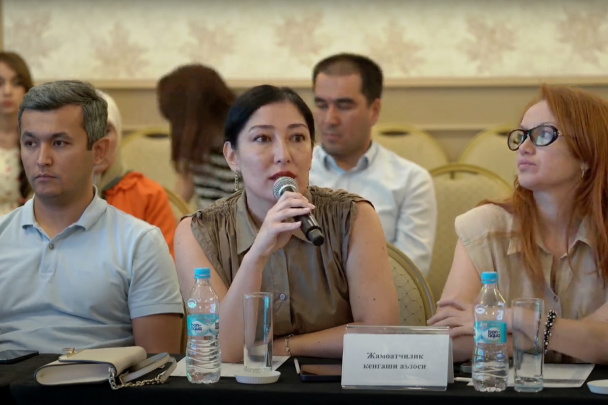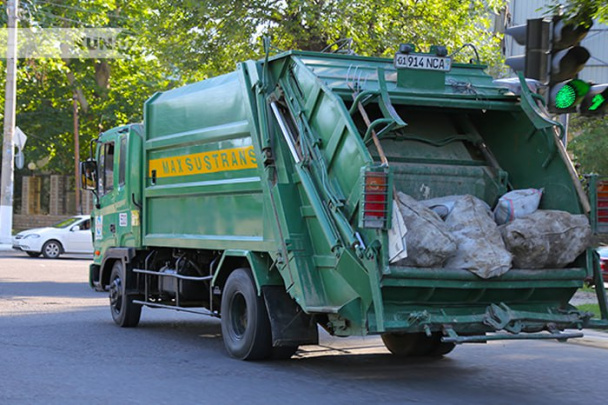Uzbekistan introduces new system blocking electricity payments for waste collection debtors
Authorities in Uzbekistan have announced a new system that will restrict waste collection debtors from paying for electricity until their overdue waste collection payments are cleared. This policy, developed by the Waste Management Agency, aims to reduce the significant number of unpaid waste service bills across the country and is expected to take effect once the “Toza Makon” billing system is fully implemented.
Under the new rules, residents with unpaid waste bills will be temporarily barred from making electricity payments until they settle their waste debts. Starting November 1, citizens who are three months behind on waste payments will face this restriction, while from January 1, 2025, those who are even one month in arrears will be affected.
Shukhrat Rakhmonov, Head of the Waste Management and Circular Economy Agency, explained that the program is being rolled out gradually. By June 1, 2024, a six-month debt threshold will trigger restrictions, moving to a three-month threshold by November 2024, and a one-month threshold by January 2025. Only debt accumulated from January 1, 2024, will be considered for these restrictions.
In collaboration with “Hududiyelektrtarmoqlari,” the national electricity provider, the Waste Management Agency has set up a notification system. In October, SMS alerts were sent to indebted customers, and from now on, electronic payments will automatically reflect the waste debt status, temporarily preventing payment for electricity until the debt is cleared.
Rakhmonov also noted ongoing efforts to amend consumer rights, competition, and energy legislation to formalize the new policy. Meanwhile, the upgraded “Toza Makon” billing system will serve as the main platform for waste service payments, integrating with various databases to ensure up-to-date customer information and prevent billing errors.
The upgraded system, expected to be fully operational by November 5 following routine maintenance, features a secure login linked to Uzbekistan’s OneID identification system. This integration allows residents to monitor and pay their waste collection bills conveniently through a mobile app, with real-time information on the number of household members, billing details, and payment deadlines.
According to recent reports, the nation’s waste service debts have accumulated significantly, totaling 585 billion UZS. The new billing system aims to facilitate a more seamless payment process for residents, which officials hope will gradually reduce this debt.
Recommended
List of streets and intersections being repaired in Tashkent published
SOCIETY | 19:12 / 16.05.2024
Uzbekistan's flag flies high on Oceania's tallest volcano
SOCIETY | 17:54 / 15.05.2024
New tariffs to be introduced in Tashkent public transport
SOCIETY | 14:55 / 05.05.2023
Onix and Tracker cars withdrawn from sale
BUSINESS | 10:20 / 05.05.2023
Latest news
-
Uzbekistan, Hungary expand dialogue on counterterrorism and public safety
POLITICS | 20:57 / 22.07.2025
-
Law tying electricity access to waste payment enforcement meets technical hurdles
SOCIETY | 19:08 / 22.07.2025
-
Uzbekistan to deepen energy sector ties with Russia’s Gazprom Neft
SOCIETY | 19:07 / 22.07.2025
-
Experts urge Uzbekistan to revise data localization rules to support innovation
SOCIETY | 17:40 / 22.07.2025
Related News

19:08 / 22.07.2025
Law tying electricity access to waste payment enforcement meets technical hurdles

16:23 / 17.07.2025
Rogun hydropower plant to supply electricity to Uzbekistan during peak demand

19:28 / 14.07.2025
Catering businesses in Uzbekistan demand compensation for power outages

09:10 / 12.07.2025



